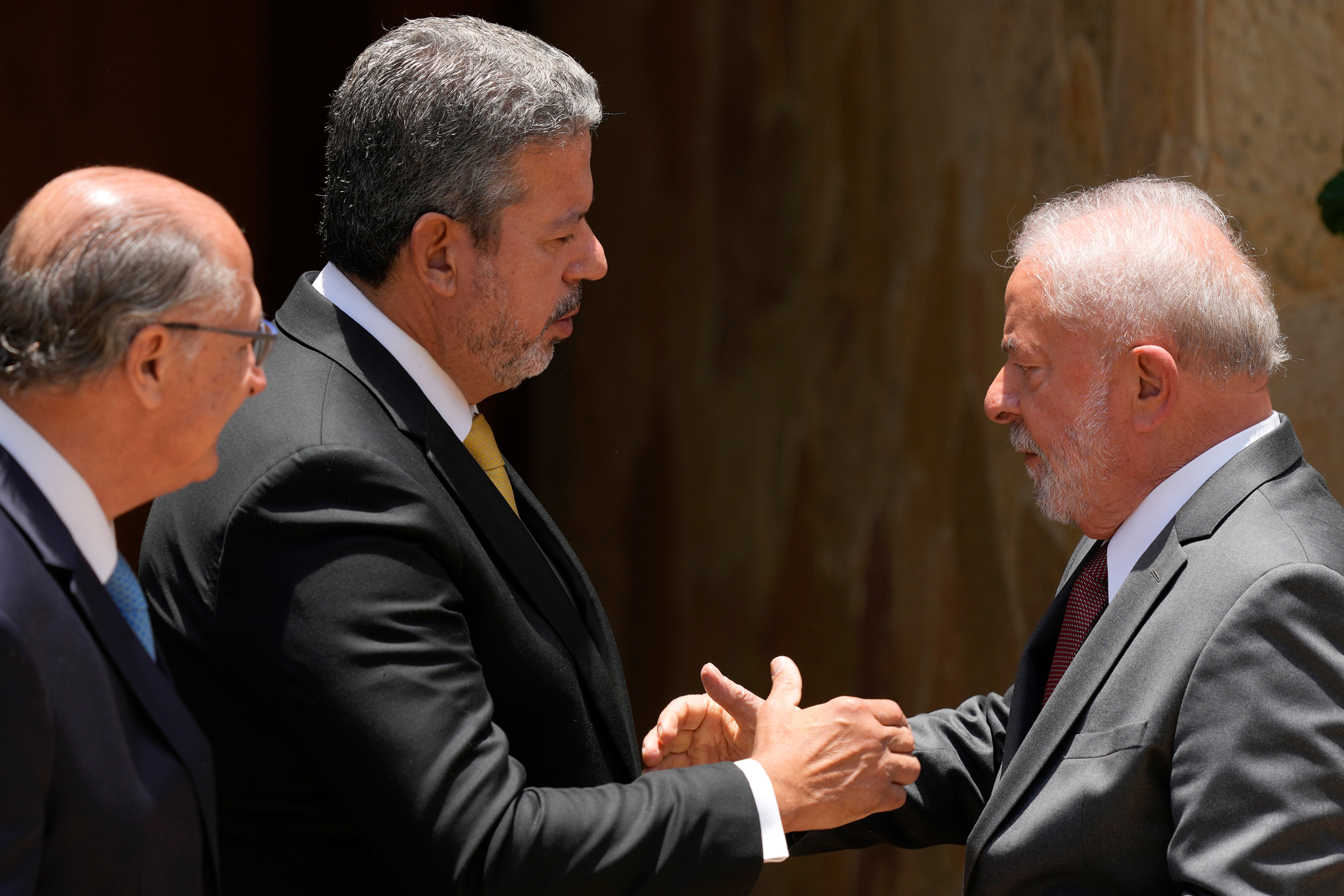Brazil's lower house finds compromise in a major reform of the country's ‘dysfunctional’ tax system
Brazil’s lower house of Congress has approved a major reform of the nation’s notoriously complicated tax system, showing compromise is possible between the conservative Congress and leftist President Luiz Inácio Lula da Silva

Brazil’s lower house of Congress approved a major reform of the nation’s notoriously complicated tax system early Friday, showing compromise is possible between the conservative Congress and leftist President Luiz Inácio Lula da Silva.
The long-awaited tax reform aims to simplify the system, widely considered overly burdensome for both individuals and businesses, and boost economic growth that has drifted between downturns and doldrums for the last decade.
“Brazil will have its first tax reform of the democratic period. A historic moment and a great victory for the country,” Lula said on Twitter.
The vote in the Chamber of Deputies followed decades of attempts to comprehensively reform the current system. The measure will now go to the Senate. If it makes significant modifications, the proposal will return to the lower house for a final vote.
Given last year’s highly divisive electoral campaign, there had been speculation that legislative gridlock could stymie any of Lula’s legislative agenda. In a speech before the vote, Speaker Arthur Lira, who supported former President Jair Bolsonaro’s failed election bid in October, called on lawmakers to leave partisan divisions aside and support the measure.
“There is no Brazilian happy with our current scenario,” Lira said. “Everyone wants a tax system that is simplified and efficient.”
The constitutional amendment required a 60% majority in two rounds of voting before proceeding to the Senate. It passed easily by greater than 3-to-1 margins in both votes. When results appeared on the giant television screen in Congress, lawmakers reacted with cheers and applause.
“Approval shows that there is a willingness of Brazil’s political elites to adopt pragmatic positions — a shift away from the recent past charged with ideological positioning and low on public policy formulation,” said Mayra Goulart, a political scientist at the Federal University of Rio de Janeiro.
A key backer of the reform was Sao Paulo state Gov. Tarcísio de Freitas, whose name has been floated as a potential standard-bearer of the political right since Bolsonaro was barred from running for office for eight years. De Freitas threw his weight behind the bill following negotiations with Finance Minister Fernando Haddad on Wednesday.
But passage also followed record allocations of funds to lawmakers for projects in their home states, revealing the government’s reliance on grants to drum up votes to advance its economic agenda.
Bolsonaro has been a vocal opponent of the reform, which on Tuesday he said on Twitter was a “punch to the stomach of the poorest.” Before the vote, a representative of his party — the largest in the lower house — said in a brief speech that its members oppose the proposal, calling it unfair.
Bolsonaro has been making a “destructive and illogical” attempt to frame the reform as an endeavor of only the executive branch, according to Samuel Pessoa, an economist at the Getulio Vargas Foundation, a university and think tank.
“Executive support is crucial, … but this reform succeeded because there is consensus that the current system has reached its limit, is increasingly unviable and is slowing down business in Brazil,” Pessoa said.
The Chamber of Deputies’ website detailing the proposal went further, slamming the current system as “complex, dysfunctional, inefficient, unbalanced and unfair.”
Under the current system, the five main taxes on consumption -– known as IPS, ISS, ICMS, PIS and Cofins -- are collected at different levels of government, with the 27 federal entities and over 5,500 municipalities imposing their own, frequently updated levies.
The system generates differences of interpretation, leading to time-consuming lawsuits and requiring companies to heavily staff accounting departments. That reduces budgets for areas like research and development and deters foreign investment.
“When a multinational operates in Brazil, it needs 20 to 30 times more accountants than in other countries. Brazil has the highest compliance cost in the world,” Pessoa said.
If approved by the Senate, the reform will merge the five main levies into two value-added taxes: one federal and another to be shared between states and municipalities.
It also will tax goods where they are consumed instead of where they are produced, in an attempt to put an end to tax wars between states that seek to attract investments by offering benefits and undercutting one another. Implementation would begin in 2026, with full migration to the new system in 2033.
To fulfill its redistributive ambitions, the reform proposes a cash-back system, enabling low-income families to claim back part of their consumption tax. Eligibility criteria have not yet been decided.
“A good tax reform tackles inequality and this is an important first step,” said Carla Beni, another economist from the Getulio Vargas Foundation. “But attaining that objective also depends on an income tax reform.”
Such a reform is also in the works and could be voted on either at the end of this year or early 2024, Beni said.